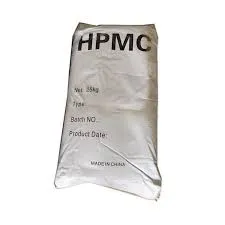
Dec . 01, 2024 03:43 Back to list
Applications and Benefits of Hydroxypropyl Methylcellulose in Various Industries
Uses of Hydroxypropyl Methylcellulose A Versatile Polymer
Hydroxypropyl methylcellulose (HPMC) is a semi-synthetic polymer derived from cellulose, a natural polymer found in plant cell walls. Its unique properties make it a valuable ingredient in various industries, including pharmaceuticals, food, cosmetics, and construction. This article explores the diverse applications of HPMC, illustrating its multifunctionality and significance in everyday products and specialized applications.
Pharmaceutical Applications
One of the most prominent uses of HPMC is in the pharmaceutical industry. HPMC serves as a thickening agent, stabilizer, and film-forming agent in various drug formulations. It is frequently utilized in the production of controlled-release drug formulations. The polymer's viscosity and gel-forming ability enable it to control the release of active pharmaceutical ingredients (APIs) over time, improving the bioavailability and therapeutic efficacy of medications.
Moreover, HPMC is commonly used as an excipient in tablet formulations. It aids in improving the mechanical strength of tablets, ensuring that they do not break during handling and transportation. Its water-retaining properties also help in maintaining the moisture levels in pharmaceutical products, enhancing shelf life and stability.
Food Industry Applications
In the food industry, HPMC functions as a food additive, specifically noted for its thickening, emulsifying, and stabilizing properties. It is categorized as an approved food additive by various regulatory bodies worldwide. HPMC is utilized in gluten-free products, where it enhances the texture and binds ingredients, effectively compensating for the absence of gluten.
Moreover, HPMC is used in the preparation of sauces, dressings, and ice creams to improve viscosity and create a desirable mouthfeel
. It also acts as a fat replacer by providing creaminess without the added calories, making it a popular choice among health-conscious consumers.Cosmetic and Personal Care Products
uses of hydroxypropyl methylcellulose

The cosmetic industry also benefits from the use of HPMC. Its thickening and emulsifying properties make it an essential ingredient in lotions, creams, and gels. HPMC helps improve the texture and stability of these products, ensuring they remain smooth and effective.
In hair care products, such as shampoos and conditioners, HPMC is employed to provide a rich, luxurious feel. It enhances the spreadability of products and improves their performance, creating a more satisfying user experience. HPMC is also used in skincare products for its ability to retain moisture, making it a valuable ingredient for hydrating formulations.
Construction and Building Materials
HPMC has found considerable utility in the construction industry, where it is used as an additive in cement, mortar, and plaster. Its water-retention properties prevent the rapid drying of mortar mixes, allowing for improved workability and adhesion. HPMC also enhances the thickness and consistency of construction materials, contributing to their performance.
In addition, the inclusion of HPMC in tile adhesives allows for superior bond strength and flexibility, making it a popular choice for both indoor and outdoor applications. Its presence helps combat common issues, such as cracking and detachment, ensuring durable finishes.
Other Applications
Beyond the mentioned industries, HPMC has various other applications. It is used in contact lenses as a lubricating agent, providing comfort and moisture to wearers. In the agricultural sector, HPMC acts as a dispersant in pesticide formulations and aids in the slow release of agrochemicals, promoting effective plant growth while minimizing environmental impact.
In conclusion, hydroxypropyl methylcellulose is a multifunctional polymer with a wide range of applications across numerous industries. Its unique properties, including water retention, thickening, and emulsification, make it an invaluable ingredient in pharmaceuticals, food products, cosmetics, construction materials, and beyond. As industries continue to evolve, the significance of HPMC is likely to grow, reflecting the ongoing need for innovative and effective solutions in both consumer and industrial markets.
-
Versatile Hpmc Uses in Different Industries
NewsJun.19,2025
-
Redispersible Powder's Role in Enhancing Durability of Construction Products
NewsJun.19,2025
-
Hydroxyethyl Cellulose Applications Driving Green Industrial Processes
NewsJun.19,2025
-
Exploring Different Redispersible Polymer Powder
NewsJun.19,2025
-
Choosing the Right Mortar Bonding Agent
NewsJun.19,2025
-
Applications and Significance of China Hpmc in Modern Industries
NewsJun.19,2025







